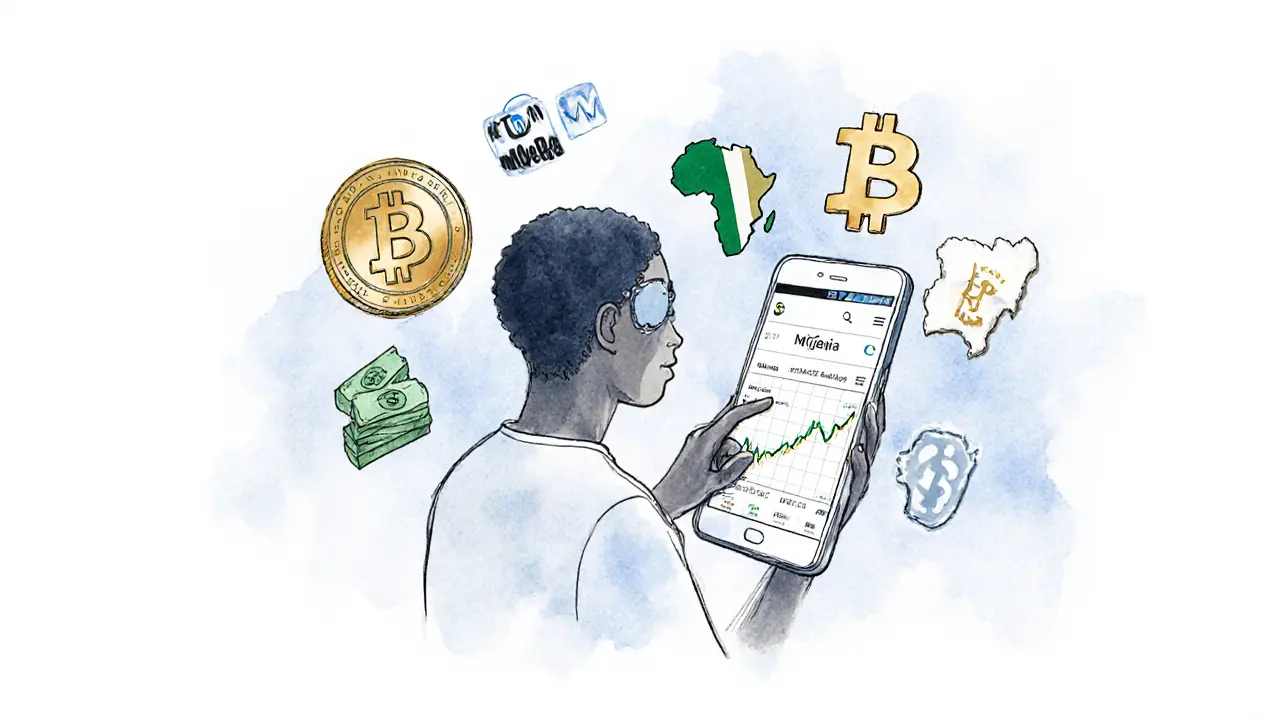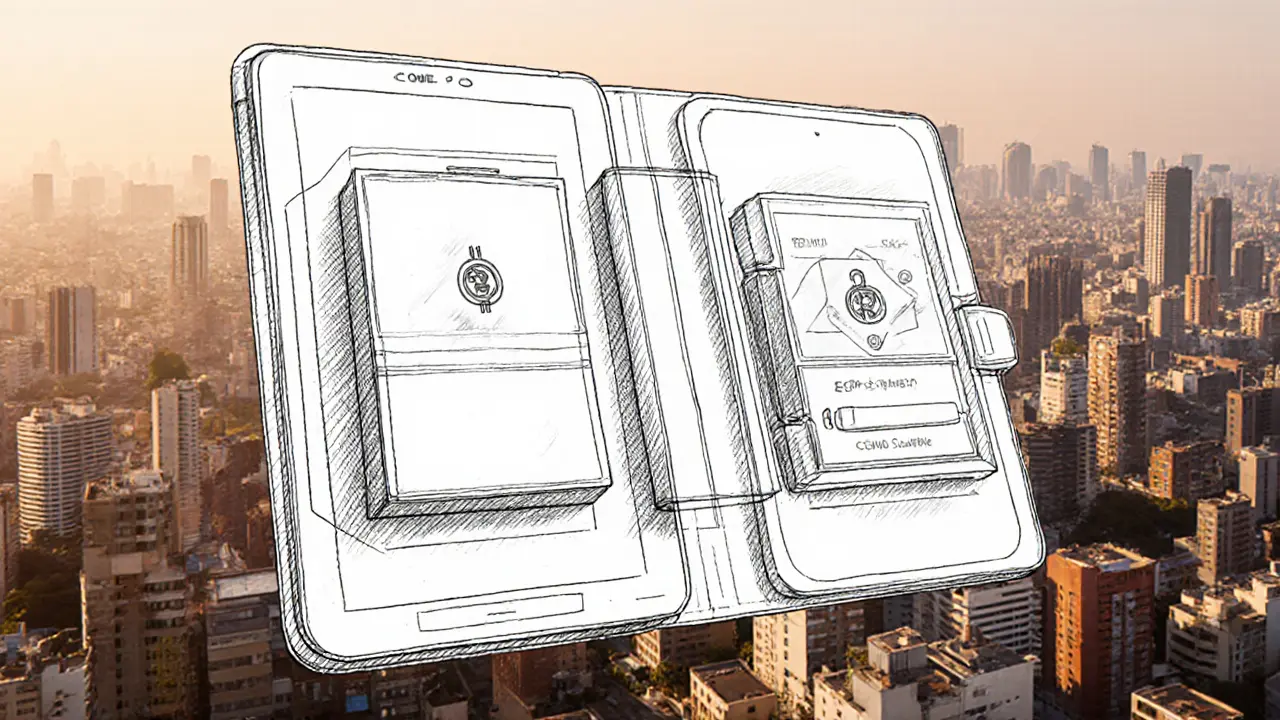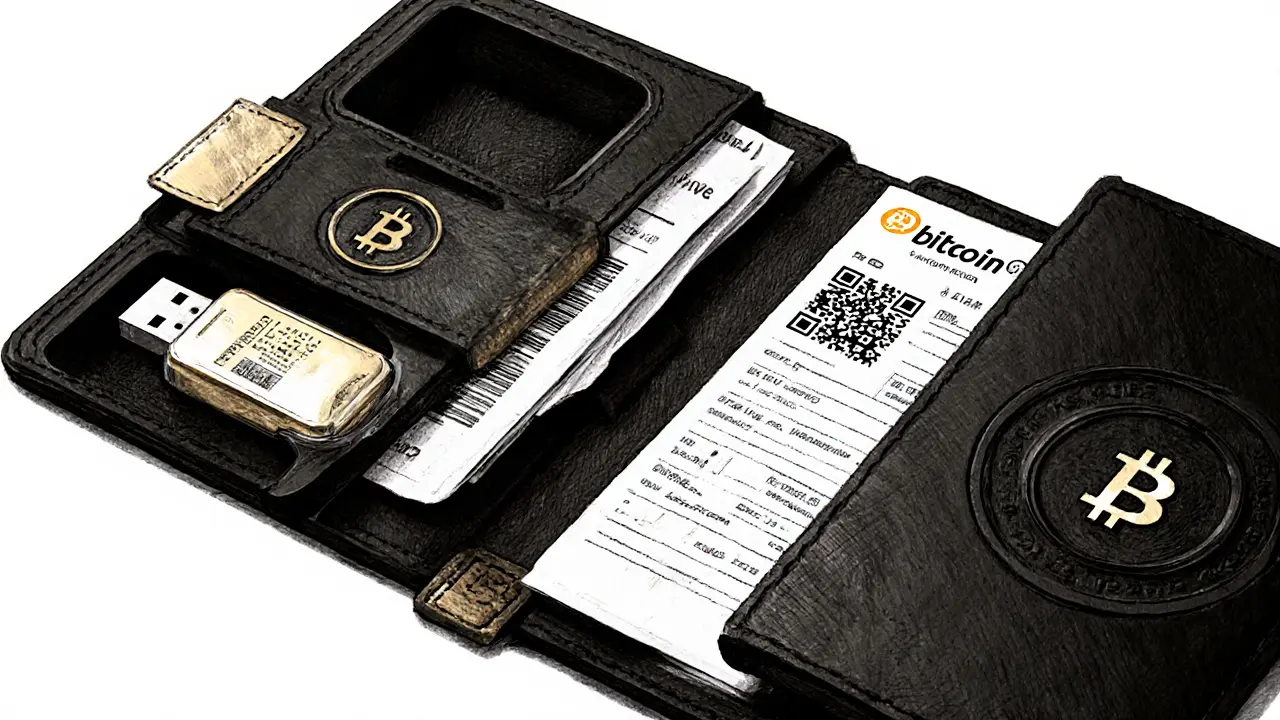P2P Crypto Platforms in Restricted Countries: How People Bypass Bans to Trade Bitcoin

Remittance Cost Comparison Calculator
Send Money Amount
Cost Breakdown
When your government blocks banks from handling cryptocurrency, where do you turn to buy Bitcoin? For millions in Nigeria, Venezuela, Bangladesh, and beyond, the answer isn’t a centralized exchange-it’s a P2P crypto platform. These platforms let people trade directly with each other, using cash, mobile money, or bank transfers, bypassing state restrictions and financial censorship. This isn’t a loophole. It’s survival.
Why P2P Crypto Exists in Restricted Countries
In countries where crypto is banned or heavily restricted, traditional exchanges like Coinbase or Binance’s main platform are often blocked. Banks freeze accounts. Payment processors cut off services. But people still need to protect their savings from hyperinflation, send money home, or access goods and services priced in USD. That’s where P2P comes in. Take Nigeria. After the Central Bank banned banks from facilitating crypto in 2017, trading didn’t stop-it moved underground. Today, over 30 million Nigerians use P2P platforms to buy Bitcoin. Why? The naira lost 80% of its value against the dollar between 2019 and 2023. People aren’t speculating. They’re storing value. In Venezuela, where inflation hit 1,000,000% in 2019, citizens traded $127 million in crypto each month on P2P platforms in 2022. In Bangladesh, where crypto is technically illegal, users still trade daily using mobile wallets and cash deposits. The demand isn’t theoretical. It’s urgent.How P2P Platforms Work Under Restrictions
Unlike regular exchanges that hold your money, P2P platforms act like marketplaces. You post an ad: “I’ll sell 0.1 BTC for 500,000 Nigerian naira via bank transfer.” Someone else buys it. The platform holds the Bitcoin in escrow until you confirm payment. Only then is the crypto released. These platforms use multi-signature escrow systems. That means three keys are involved: yours, the buyer’s, and the platform’s. Two out of three keys must approve the release. This prevents fraud. If you pay but the seller doesn’t release the Bitcoin, you can open a dispute. The platform reviews chat logs, bank receipts, and screenshots before deciding. To avoid government detection, many platforms operate without apps on Google Play or Apple App Store. In countries like China or Algeria, users download APK files directly from websites. Some use Tor browsers to hide their IP addresses. Others switch between Wi-Fi networks or use public libraries to trade.Top Platforms Used in Restricted Countries
Not all P2P platforms are equal under restrictions. Here’s what’s actually working:- Binance P2P: The most popular globally. Supports over 100 payment methods, including mobile money in Africa and UPI in India. Low fees (0.1%-0.5%), fast matching, and 24/7 support in local languages like Swahili and Hausa.
- Paxful: Known for flexible payment options-gift cards, cash deposits, PayPal (where allowed), and even Amazon credits. Has 3.2/5 stars on Trustpilot in restricted markets due to long holds and slow payouts.
- Yellow Card: Focused on Africa. Works with mobile money providers like MTN Mobile Money and Airtel Money. Handles $200 million monthly in volume across Nigeria, Ghana, and Kenya.
- HodlHodl: Fully non-custodial. No KYC. No account freezes. You trade directly with strangers using Bitcoin multisig. Harder to use, but safest from legal risk.
- LocalBitcoins: Once the leader, now faded. Its strict KYC rules scared off users in banned countries. Market share dropped from 68% to 29% in restricted regions between 2020 and 2022.

Payment Methods That Actually Work
The real magic of P2P is flexibility. You’re not stuck with bank transfers. Here’s what people use in restricted countries:- Mobile money: M-Pesa in Kenya, MTN Mobile Money in Nigeria, Airtel Money in Uganda. Fast, widely used, and hard for banks to block.
- Cash deposits: Users meet in public places-coffee shops, markets-to deposit cash into the seller’s account. Often done with video proof.
- Gift cards: Amazon, iTunes, and Google Play cards are popular in Latin America and Southeast Asia. Easy to resell, hard to trace.
- Bank transfers: Still common, but risky. Banks monitor for crypto-related keywords. Users disguise payments as “personal loans” or “freelance payments.”
- PayPal and Western Union: Rarely allowed, but used in countries like Egypt and Turkey where crypto is legal but restricted for payments.
Real Risks: Fraud, Freezes, and Legal Trouble
P2P isn’t risk-free. In fact, it’s riskier than trading on regulated exchanges.- Fraud: 37% of all P2P fraud cases in 2022 came from restricted countries, according to Paxful’s internal data. Scammers fake payment screenshots, use stolen bank accounts, or disappear after receiving crypto.
- Bank account freezes: In Nigeria, 22% of P2P users had their bank accounts frozen in 2023. Banks don’t need proof-just suspicion. One user in Lagos lost $1,500 when his account was closed for “suspicious activity.”
- Legal exposure: In Bangladesh, crypto trading is illegal. In 2023, police arrested 12 people for using Binance P2P. In Algeria, the penalty is up to 5 years in prison.
- Liquidity issues: In restricted markets, average order book depth is $8,500. In the U.S., it’s $215,000. That means large trades take hours or days to complete.

Who’s Using P2P Crypto-and Why
It’s not just techies. Here’s who’s actually trading:- Ages 25-34: 63% of users. Young, digitally native, and tired of inflation.
- Unbanked populations: 87% of Nigerian P2P users had no bank account before using crypto.
- Remittance senders: 41% use P2P to send money abroad. Fees drop from 6.5% (Western Union) to 1.2% (P2P).
- Small business owners: In Venezuela, shopkeepers accept Bitcoin from customers and instantly convert it to USD via P2P to buy inventory.
What You Need to Get Started
If you’re in a restricted country and want to try P2P:- Get a non-custodial wallet like Trust Wallet or Exodus. Never store crypto on the P2P platform.
- Download the app directly from the platform’s website if it’s not on Google Play.
- Start with small trades ($50-$100). Use trusted sellers with high ratings and 100+ completed trades.
- Always use escrow. Never send money before the crypto is locked in escrow.
- Keep screenshots of all communication and payment proofs.
- Use a VPN if your government blocks the site.
The Future: Will P2P Survive?
Governments aren’t giving up. China arrested over 1,200 people for crypto trading in 2023. Nigeria’s Central Bank is testing a blockchain-based payment system-while still banning crypto. The IMF pushes countries to maintain bans, arguing crypto threatens financial stability. But the data doesn’t lie. P2P volume in restricted countries grew 217% in 2022. By 2025, it’s projected to hit $210 billion annually. Why? Because when people can’t access money through normal channels, they build new ones. Platforms like HodlHodl and Bisq are pushing toward true decentralization-no KYC, no central server, no single point of failure. That’s the endgame: financial sovereignty. For now, P2P crypto remains the most powerful tool for financial resistance in restricted countries. It’s not perfect. It’s not safe. But for millions, it’s the only option left.Is P2P crypto legal in restricted countries?
It depends. In some countries like China, Algeria, and Bangladesh, trading crypto is illegal and can lead to fines or jail time. In others like Nigeria and India, it’s not explicitly banned, but banks block transactions and the government warns against it. Always check your country’s current laws-rules change fast.
Can I get in trouble for using Binance P2P in a banned country?
Yes, but it’s rare for individuals to be targeted unless they’re trading large amounts or running businesses. Most enforcement focuses on operators, not users. Still, your bank account could be frozen, your phone number flagged, or your internet access restricted. Use discretion. Never advertise your activity publicly.
How do I avoid scams on P2P platforms?
Stick to sellers with 98%+ positive feedback and over 100 completed trades. Never accept payment screenshots without verifying the transaction in your bank app. Always use the platform’s escrow system. If someone asks you to pay outside the platform, walk away. Real traders won’t pressure you.
Why do P2P trades take longer in restricted countries?
Because platforms add extra checks. They verify payment methods, screen for fraud, and sometimes delay trades to comply with local regulations. In Nigeria, a trade can take 15-30 minutes. In the U.S., it’s 5-8 minutes. The delay isn’t a bug-it’s a feature designed to reduce risk.
Can I use P2P crypto to send money to family abroad?
Absolutely. This is one of the most common uses. Someone in Nigeria can buy Bitcoin on Binance P2P, send it to a relative in the U.S., and they can sell it for USD instantly. Fees drop from 6-7% (Western Union) to under 1.5%. It’s faster, cheaper, and more reliable than traditional remittance services.
What’s the safest P2P platform for beginners in restricted countries?
Binance P2P is the safest for beginners. It has strong escrow protection, 24/7 support in local languages, and the largest pool of buyers and sellers. Start with small trades. Avoid platforms like LocalBitcoins-they’ve become slower and more restrictive. If you want zero KYC, try HodlHodl, but only if you understand Bitcoin wallets and multisig.

Rebecca Amy
November 17, 2025 AT 08:41Aayansh Singh
November 19, 2025 AT 04:01Darren Jones
November 20, 2025 AT 21:01Kathleen Bauer
November 22, 2025 AT 01:34Carol Rice
November 23, 2025 AT 00:57Laura Lauwereins
November 24, 2025 AT 17:45Gaurang Kulkarni
November 25, 2025 AT 22:35Peter Rossiter
November 27, 2025 AT 02:40Mike Gransky
November 28, 2025 AT 10:06Ella Davies
November 29, 2025 AT 09:53Henry Lu
November 29, 2025 AT 12:07nikhil .m445
November 30, 2025 AT 08:10Rick Mendoza
December 1, 2025 AT 03:04Lori Holton
December 2, 2025 AT 11:12Bruce Murray
December 3, 2025 AT 18:48Ryan Hansen
December 5, 2025 AT 01:32Derayne Stegall
December 5, 2025 AT 13:02Astor Digital
December 6, 2025 AT 22:40Shanell Nelly
December 7, 2025 AT 18:32Usnish Guha
December 8, 2025 AT 23:20rahul saha
December 10, 2025 AT 02:10Marcia Birgen
December 11, 2025 AT 00:48Jerrad Kyle
December 12, 2025 AT 03:42Usama Ahmad
December 13, 2025 AT 02:52